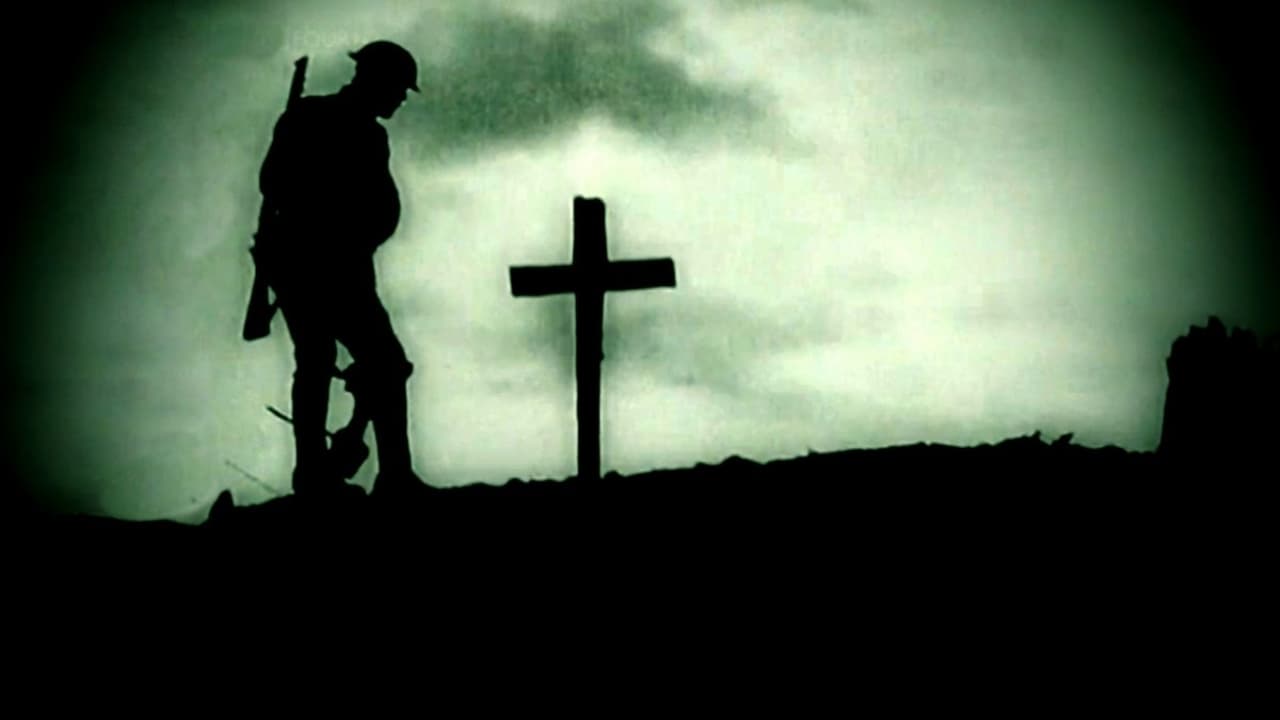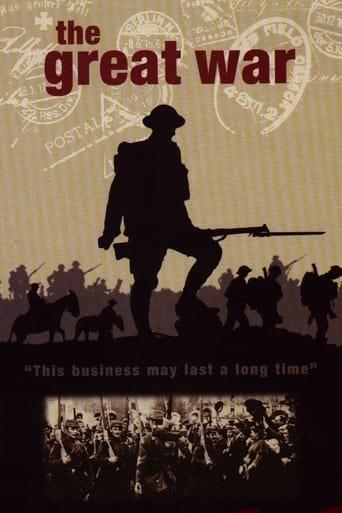

Over the course of the 26 episodes it covers the battles, the politics, the economics, the cultural effects and most important - the graft of the men serving both sides as they fight for increasingly fading values.What's particularly impressive is how well it holds up after almost half a decade. The footage used, while repeated at times, gives the viewer a clear guide of the people involved and what's going on while Redgrave delivers his perfectly pitched commentary. It's particularly appreciated that they managed to get some of the civilians and soldiers who actually experienced all of this, to weigh in at certain points for added humanity. Listening to them speak candidly about trench life, or running into barbed wire while having machine guns blazing at them, certainly brings an unquantifiable respect for those who fought, as the horror unfolds on the screen.The only thing I would have liked added to the documentary is an episode covering each country post-war. This would have been a more fitting end to a series that shows, quite clearly, that there were no true victors in 1918.
... View MoreMost comments on the BBC documentary series The Great War tend to praise its detailed and impressively sombre style. True, this documentary gives details on all the different years, fronts and countries that were involved in Word War I. And true, even though it takes a staggering 26 episodes of 40 minutes each (totaling over 1,000 minutes!), it stays fascinating material and wonderfully narrated.What I find problematic is that the whole focus is on facts, tending to let analysis and insights get nearly lost. It only briefly discusses the origins of the war. These go way back to the 19th century with the Crimea War, the Concert of Europe, the Franco-Prussian War, the Scramble for Africa and the competitive nature of the great powers. Although some of these elements are briefly mentioned in one of the first episodes, it only scratches the surface. I tend to find reasons WHY things happen more interesting than WHAT happens. If you would make a documentary of the Hundred Years War (14th-15th century), I guess most would focus on the causes, most important facts and the consequences of that war, and not only on every battle. I guess that the production date of this documentary (1960s) can explain the strong focus on facts; in the first decades after highly-emotional wars the focus of history writing tends to be on facts. Insight comes with time and rational distance from the war.Given the focus on the facts, I was stunned about two major omissions in the documentary. First, there was no mention of the Spanish flu. This could hardly be considered a trivial matter, since it killed more people than World War I and was raging in the trenches from March 1918 on. Maybe the impact of the Spanish flu on the war was not fully understood at the date of production of this documentary. Second, the last episodes ends at the armistice, 11 November 1918. There is no mention of the peace talks and the peace of Versailles. The Great War officially ended after the peace agreement and not at the armistice. And no mention of the aftermath and consequences of World War I.So my conclusion is that it is an impressive documentary to watch, but it could have been even better.
... View MoreThis series is a PRICELESS exercise in archive footage - make no bones about it. The series is over 10 hours long yet consists almost entirely of archive footage from all the major battles of the war, particularly the Western Front. There is the odd interview with the veterans, well and alive and indeed quite young in 1964, yet the amazing sight is the reel after reel of archive footage. Where did they get it all from? (and why is it NEVER used in any WWI film before or since? - they all use the same few stills and films over and over again). Countless shots of the Somme battlefields, Belgium, Verdun, and everywhere! I only chanced upon it in the library, for a cheap rental; but watch this urgently. Another surprising impression is the sheer modernity of the whole thing - great guns, brilliant filming, great troop movements, even aeroplanes and dog fights. Footage shot from old Sopwith Camels of bomb-drops and stuff like that. It shows the Middle East fronts, Italy vs. Austria, Romanian fronts, Russian, the whole shebang! Also has a fantastic classical score to accompany it and brilliant narration by Sir Michael Redgrave.
... View MoreIn the early 1960's the BBC had a very talented production team that had come together to make a nightly 'magazine' feature called 'Tonight'. They somehow became part of a project to create a series about the First World War (then still known by some people as the 'Great War').Something of this magnitude had never before been attempted in Britain. It required a great deal of painstaking research and assembling still photographs and archive film from all over the world. More to the point, at this period, a large number of the participants were still alive and could be interviewed - the series is a priceless exercise in 'oral history'.The principal historical consultant and writer was John Terraine, the foremost military historian of the time, and Michael Redgrave was engaged to speak the narration.The series appeared in 1964, when I saw it as a child. It was an outstanding success, and spawned a rather weaker sequel, 'The Lost Peace'.Then, for reasons best known to themselves, the BBC sat on the tapes. Some isolated episodes were sometimes shown at the Imperial War Museum in London, but the series was largely forgotten.However, it has recently been re-released in its entirety as five double video packs. It should not be confused with any other series of a similar title - this remains the original and the best!
... View More